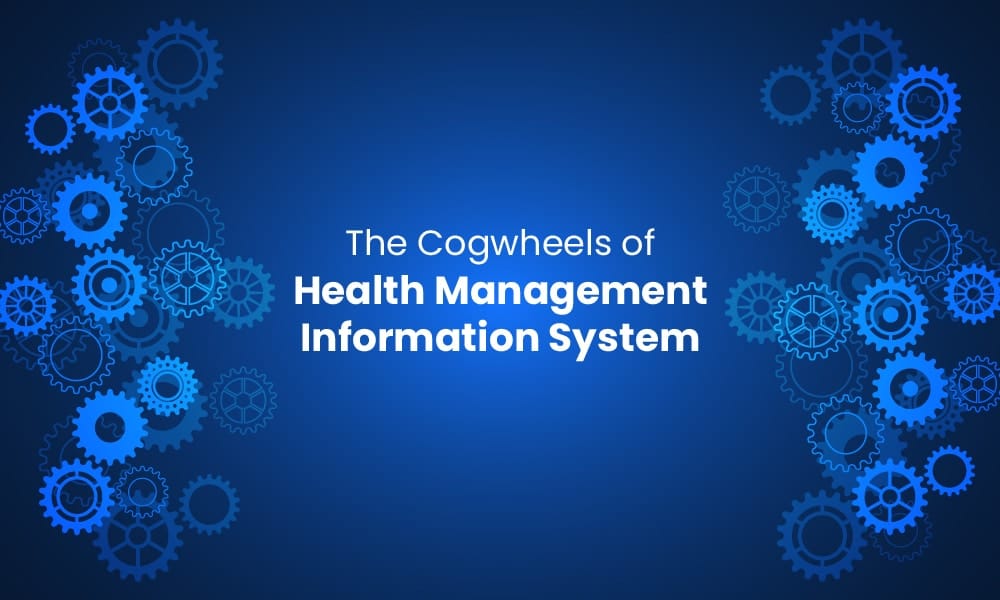
Have you ever noticed the functioning of a cogwheel in machines? The cogwheel transfers motion and force between the interconnected gears to get the output from a machine. Similarly, in the case of a health management information system, there are a set of important components and modules that work together to ensure the smooth functioning of a hospital management system.
What Is the Real Meaning of Cogwheel Here? And Why It Is Important?
The essential cogwheel here is a set of integrated modules capable of ensuring the smooth functioning of a hospital management system. It enhances a hospital’s capabilities to differentiate its services and patient care through effective data management and handling.
A trusted healthcare service provider can make a real difference in healthcare practice management and improve patient care. A technology-based healthcare system can lead healthcare with knowledge, best practices, and learning. A technology-based healthcare system enables one to manage the administrative, financial, and clinical information of a hospital. It manages patient flow effectively in real time.
Why a Health Management Information System is a Need for Every Hospital?
The health management information system is a technology-based software system that helps to manage patient information and care. It helps in communicating between all departments of healthcare and helps in delivering quality medical care.
If you are running a hospital or clinic, you will have to manage multiple processes across different departments. Your day-to-day tasks involve registration, appointment scheduling, and billing along with the discharge and admission of patients with lots of paperwork and hectic management. So, to handle these tasks you need a helping hand a saviour with superpowers who can efficiently manage all these tasks. So, what is the solution? The answer is the hospital Management System.
Advantages of Health Management Information System
- Easy access to data: TheHospital Management System stores all patient data in an electronic format such as patient medical history, treatment, test results, and diagnosis. The system ensures the security of information and is available to authorized users at any time.
- Cost-efficiency: With an automated patient management system workload can be reduced and hospitals need not hire more staff thereby reducing the cost and making work more effective and efficient.
- Reduces error: Medical errors can be reduced using healthcare management software.
- Better patient experience: Hospital management software is patient-oriented and makes interaction with doctors and patients less stressful. It improves staff interaction, cooperation, and teamwork.
- Improves Revenue: Hospital Management Software brings revenue to the hospital through trust-building in serving patients and builds a reputation that improves profitability. HMS can give accurate financial reports and can bring a sense of control over how the hospital is running.
- Synchronization: A health management information system ensures synchronization, keeps patient’s records, and tracks inventories, and advanced HMS can be customised to your specific needs and can fit into any hospital.
The Real Cogwheels of a Health Management Information System
The essential components of a health management information system include:
- Patient Management: Efficiently manage patient registration, appointment, admission, and discharge.
- Billing and Financial Management: Simplifies billing, invoicing, insurance claims, and payment processes.
- Electronic Health Records (EHR): Securely stores, manages, and gives access to patient medical history, treatment details, and clinical data.
- Inventory and Pharmacy Management: Tracks medicine stock, supplies, and expiries, and ensures real-time updates on inventory levels.
- Laboratory and Diagnostics: Automates laboratory workflows, test orders, report generation, and data sharing with physicians. Human Resource Management: Manages staff scheduling, payroll, and attendance.
- Reporting and Analytics: Generate reports on patient data, hospital performance, and financial health for informed decision-making.
- Queue Management: Reduces patient wait times by streamlining front-desk operations.
- Compliance and Security: Ensures data security and regulatory compliance with industry standards like ISO and HL7.
These interconnected modules work like cogwheels, driving efficiency, improving patient care, and enhancing hospital operations.
Why Ezovion Solutions are the Best Choice
Ezovion health management information system is designed to make hospital and clinic management simple and efficient. With its easy-to-use interface, it’s perfect for handling everything from single hospitals to large hospital chains. It helps reduce patient waiting time and improves care by giving staff quick access to accurate patient information. The software brings everything you need under one roof, including Appointments, Billing, OPD, IPD, Inventory, Pharmacy, Laboratory, and Radiology. With Ezovion HMS, managing daily tasks becomes smoother, allowing hospitals to focus more on delivering better care to patients.
Conclusion
In today’s fast-paced healthcare environment, a Health management information system is no longer just an option—it’s a necessity. By automating daily tasks and enabling seamless coordination, HMS transforms how hospitals operate, making processes faster, smarter, and more efficient. From managing records and optimizing supply chains to improving communication and resource management, this technology ensures that patients, staff, and administrators experience a streamlined healthcare journey.
Hospitals and clinics worldwide are already reaping the benefits of HMS, enhancing patient care while building a future-ready healthcare model. If you’re looking to elevate your hospital’s operations and deliver exceptional care, it’s time to explore how a Hospital Management System can work for you.
Ready to take the next step? Connect with us to discover the best solutions for your healthcare institution!





